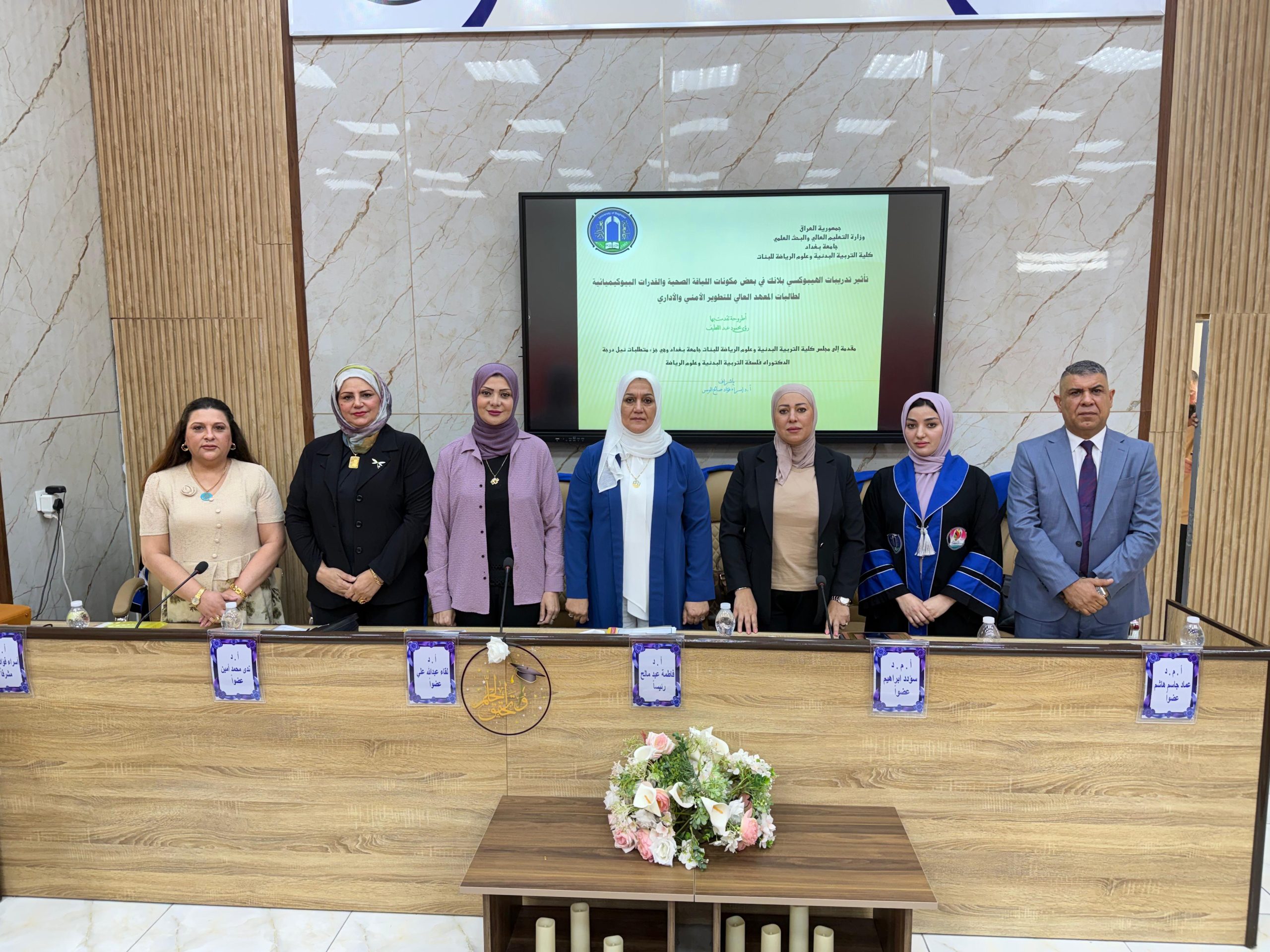Prof. Dr. Fatima Abd Malih, Dean of the College of Physical Education and Sports Sciences for Women – University of Baghdad, chaired the committee for the doctoral dissertation defense titled (The Effect of Hypoxy Plank Training on Selected Components of Health-Related Fitness and Biochemical Capacities among Female Students of the Higher Institute for Security and Administrative Development) by researcher (Ruaa Mahmoud Abdul Latif).
The examination committee also included Prof. Dr. Liqaa Abdullah Ali (member), Prof. Dr. Nada Mohammed Amin (member), Asst. Prof. Dr. Suadad Ibrahim Suhail (member), Asst. Prof. Dr. Imad Jasim Hashim from the University of Technology (external member), and Prof. Dr. Israa Fuad Saleh (supervisor).
The study aimed to design hypoxy plank training programs for students of the Higher Institute for Security and Administrative Development, identify their impact on health-related fitness, and examine their effect on selected biochemical indicators.
The researcher concluded that hypoxy plank training, when applied with appropriate tools suited to the students’ abilities, positively influenced the experimental group’s health-related fitness components and biochemical variables. Improvements were observed in trunk flexibility, along with statistically significant increases in muscular strength, certain body composition elements, and the body’s physiological response to exertion after the training program compared to pre-testing.
The study recommended adopting and incorporating hypoxy plank training into the official physical training curricula of the Higher Institute for Security and Administrative Development. It also emphasized the importance of periodic assessments of health-related fitness and biomechanical measurements used in this study to evaluate training effectiveness and track progress. Additionally, the researcher highlighted the need to provide suitable environments, equipment, and qualified trainers to ensure safe and practical application of hypoxy plank training and organize workshops and lectures to raise students’ awareness of its multiple benefits on their health, physical abilities, and functional capacities.
This dissertation defense contributes to achieving the United Nations Sustainable Development Goal 4: Quality Education.
